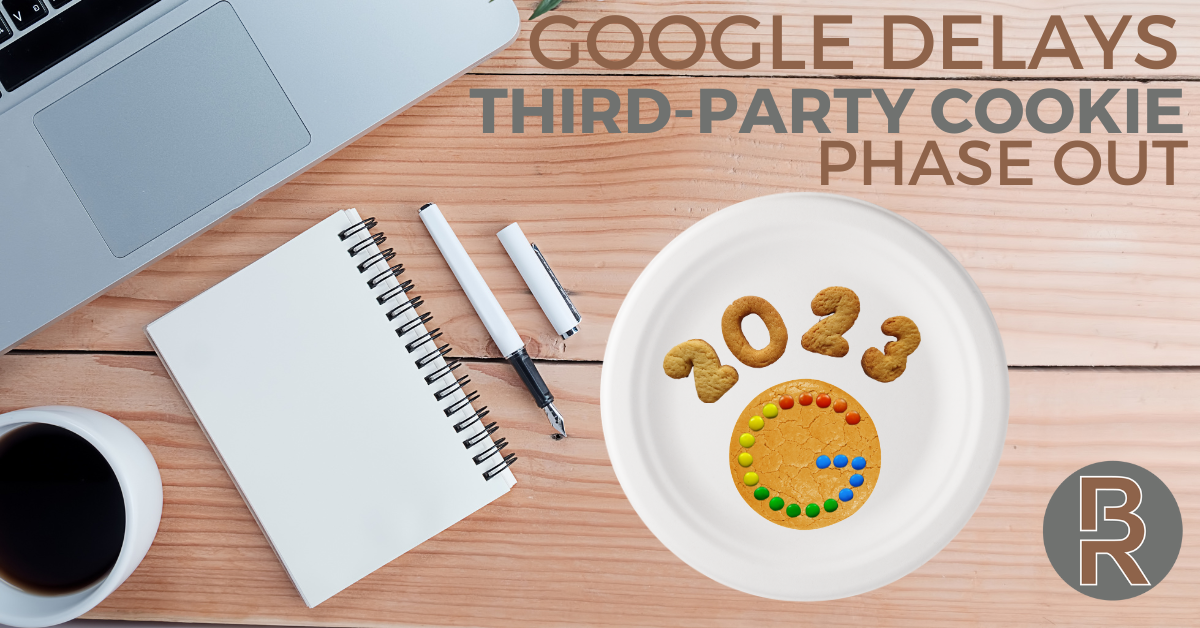Advertisers can breathe a little easier as Google recently announced that they are going to delay the elimination of 3rd party tracking cookies on its Chrome browser until late 2023. If this topic sounds familiar, you might have read our previous article where we discussed how 3rd party cookie elimination would affect digital marketing strategies. In it, we suggested some alternative ways that advertisers could track online user behavior once 3rd party cookie tracking got the ax. Cookie tracking is a practice utilized in most online ad platforms. By placing a “cookie” on a user’s web browser, advertisers can better understand that person’s online behavior and can therefore show them more relevant ads.
Why the delay?
Google received heavy pushback from other ad platforms and digital marketers alike. Many were left scrambling to develop alternative tracking methods to ensure that marketing efforts weren’t completely spoiled once Google made the switch. Many of the alternatives suggested didn’t sit well with online privacy advocates. Extending the cookie phase out will allow more time to find an alternative that satisfies Google, advertisers, and privacy advocates.
A Monopoly in the Making
In the UK, Google’s plan raised the eyebrows of antitrust authorities. Their main concern was that Google’s plan to eliminate 3rd party cookie tracking on Chrome would put other advertising platforms at a severe disadvantage thus causing advertisers to move their marketing dollars to Google’s ad platform. One of these advertising competitors is Facebook, which makes the majority of its revenue through selling ads on social media and apps. Facebook utilizes a piece of website code (or pixel) to track its ad performance metrics. Most notably, the pixel enables the Facebook ads platform to track conversion data such as leads and sales and attribute them to ads. Without this trackable conversion data, it would be difficult to prove any kind of return on advertising spend. Digital marketing has typically benefitted advertising firms because it is much easier to prove returns versus traditional forms of marketing such as television, radio, and print. Google has stated that they are more than willing to work with the UK’s antitrust authorities in order to appease.
What’s Next?
From an advertiser’s standpoint, Google’s delay provides a welcomed extension. It gives other ad platforms a chance to finetune their current solutions and marketing professionals time to put those solutions in place. There was also an indication that perhaps Google wasn’t quite ready for its own update. It looks like we are all going to have to wait another couple of years for the next era of digital ads tracking.
Worried that your digital ads might not be up to snuff? We love helping businesses optimize their online presence and develop successful campaigns! Give us a call at 713-309-6380 or fill out our contact form to discuss!

